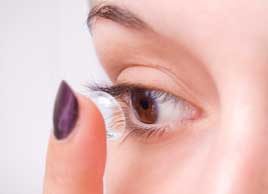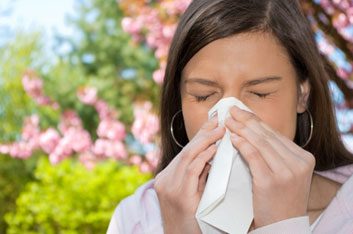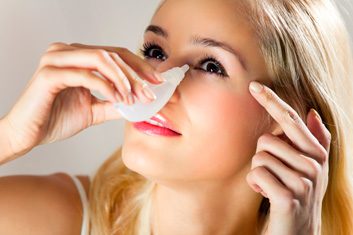
Dry eyes
More than 25 percent of Canadians get dry eyes, which can result in symptoms such as stinging, burning, redness or excessive watering. It happens when there is a problem with the tear film that coats the eyes and keeps them moist. “The most common cause is a dysfunction of the meibomian glands: small, delicate glands in the eyelids that produce an oil that prevents tears from evaporating,” says Dr. Greg Moloney, an ophthalmologist and clinical assistant professor in the department of visual sciences at the University of British Columbia.
Decreased tear production is another factor. Certain medications, autoimmune conditions, eye surgeries, hormonal changes and normal aging can impact the lacrimal glands, which secrete tears.
Dry eyes can also develop after wearing contact lenses for too many hours, or from exposure to wind, dry air or air conditioning.

Conjunctivitis
Also known as “pink eye,” this is an inflammation or infection of the membrane that covers the white part of the eyeball. It is caused by exposure to bacteria or a virus-but determining which it is can be tricky. Both cause redness, but bacterial conjunctivitis is often accompanied by a pus discharge and has a rapid onset; the viral type is accompanied by flu-like symptoms in the upper respiratory tract, and usually starts in one eye before spreading to the other. Both forms are contagious and transmitted through direct hand-to-eye contact.

Allergic conjunctivitis
This type affects up to 20 percent of the population and when triggered by hay fever, flares up when irritants from trees and grasses are at their peak (between March and July), and during ragweed season (mid-August to the first frost). “The hallmark symptoms are eye itchiness, redness, a runny nose and sneezing,” says Moloney. He recommends having a doctor determine which type of conjunctivitis you have before treating it.

How to prevent eye irritation
To prevent dryness, avoid exposure to smoke and air from heaters, fans or air conditioners blowing into your eyes. When you’re working at a computer for long stretches, take frequent breaks and blink often. To avoid bacterial and viral infections, wash your hands often, especially before inserting and removing contact lenses, and avoid touching your eyes. Don’t share cosmetics, towels or washcloths, and change your pillowcases frequently.
“If you get allergy-related irritation, consider staying inside more often during allergy season, and investing in hypoallergenic bedding,” says Natasha Montroy, a naturopathic doctor in Victoria. “Nutritionally, drink plenty of water and eat a diet rich in omega-3 fatty acids, which help lubricate the eyes.”
See your doctor within 24 to 48 hours if irritation is accompanied by eye pain, vision changes or loss, eyelid swelling, nausea or headache. Otherwise, try one of these.
Related:
• The best remedies to soothe eye irritation
• 17 tips for better vision
• Can you get a sunburn on your eyes?
